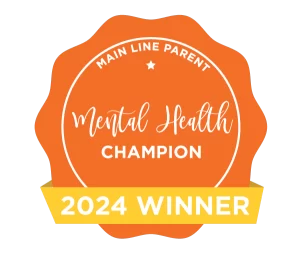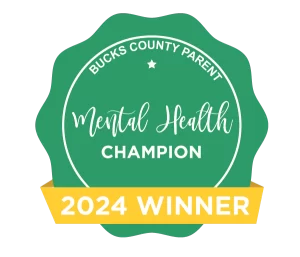Big Feelings and Big Hearts: Parenting High Needs Children.
Big Feelings and Big Hearts: Parenting High Needs Children.
The impact on you. The impact on your relationship.
By: Charlotte Nadler, MA, LMFT, CCSP-ADHD
It’s one of those days where you feel like you can’t even be honest with anyone about the level of intensity of your children and their needs. Maybe you have all the tools in the world and you know what to do, or maybe you don’t, but the feeling is the same—it’s beyond hard, you’re tired, and you are plain burnout. The summer can be confusing because it seems like the perfect time to step back, relax, and enjoy the slower pace that we crave. But sometimes it highlights the basic things that just don’t come natural to your family or kids. Raising neurodivergent children can be hard. It can feel overwhelming. There can be countless parenting conversations that leave you feeling like you’re in a hamster wheel with your partner about how to tackle your situation, and then after all the back and forth, it ends in an avalanche of conflict with no solution. It can take it’s toll on your relationship leaving you to feel alone and unsupported or maybe on the other hand, you feel like you can never do anything right as a parent and your partner is constantly on your back. And not to mention, how can you even take care of your own needs when you are feeling tapped out from the intensity of this type of parenting?
There are many times you feel you’re at an impasse and for a whole host of complicated reasons that might not make it easy to apply the wealth of information you have been scouring all night online. You just want a real plan to make real progress based on your unique situation that takes into account the nuances of your situation—how your own wellness is impacted, how your child is developing, how your relationships are impacted, and how you find adequate support through schools and other outside activities. You want hope that things are going to move forward and you’re not always going to feel stuck. You might not even believe that’s a possibility anymore. Will anyone ever be able to understand all the moving pieces and put it together? Deep down you know there is a unique and beautiful child under all the challenging behaviors and you desperately want to see that shine through. You want to be able to weather the storms with your partner. You want to feel rock solid in how you connect, be able to support each other’s needs, and have fun again. The smallest little cracks seems to grow deeper and deeper, which disrupts your entire life.
There is a different way! We can build a deeper understanding of our kids and the way they are naturally wired, our own unique neurobiology as a parent and what messages we received growing up, and ultimately what we want in our partner relationship and how to actually get on the same page. There are many levels of care that are not always integrated and working together.
Neurodivergent parenting: 4 quick tips to help get you back on track and begin the movement forward to finding deeper and sustainable answers.
- Set your kids up for success. As author Dr. Ross Greene says, “Kids do well when they can.” Lagging skills may be at the core of issues that keep coming up. We might assume that based on our child’s chronological age that they should be able to do something, when in fact, certain skills are not developed and it’s taking longer to acquire these skills naturally. Something that seems simple to us, such as flexibility, adaptability, frustration tolerance, communication, or problem solving can be extremely difficult. As a parent, try to think proactively about what skills need to be explicitly taught and developed before turning to useless punishments. That’s not to say consequences and ways to clean-up behaviors should be dismissed, but there is a need for skill development to be done ahead of time instead of being reactionary. It’s also important to notice that some environments produce more difficult behavior. Find activities that you know work for you. For example, maybe hiking in the woods has a slower pace, room for exploration, and in turn limits sibling fighting, as opposed to a family bowling outing. Pay attention to what works for your family and do more of those activities to build upon little successes.
- Think about basic needs and sensory dysregulation. One internal sensory system called interoception (one of your senses that helps you feel what’s going on inside you and can be under-responsive for some neurodivergent children) can make it harder for some kids to stop when they are tired and take a break, feel temperature changes when it gets too hot/cold, grab a drink, or a snack. In general, the ability for some children to understand when they need down time, or connection time, or how they can get their energy out, doesn’t always come easy. Slowing down the pace when you need to transition from activity to activity, investigating how/when to integrate a “sensory diet” to better balance regulating or stimulating activities can be helpful. You can also remember the acronym H.A.L.T. (hungry, angry, lonely, tired) to problem solve when your child is having difficulty articulating their needs. Hopefully there will be less of a chance for a meltdown when you take some of these factors into consideration for your sensitive child.
- Develop affective calmness and use less words. Dr. Russell Barkley (neuropsychologist and ADHD guru) succinctly explains, “Act, don’t yak.” Using less words and remaining grounded, calm, and assertive will go a long way versus speaking from a place of your own emotional dysregulation, which typically increases the volatility of the moment. Barkley goes on to say, “The more you blather, the more you natter, the more you nag, the less influence you have. So stop thinking that one more sentence will be enough to tip the scales in favor of obedience.”
- Make communication a priority with your partner when you are both calm. Talking about how both you and your partner are experiencing the demands of parenting is beneficial. Many times communication comes in the heat of the moment, which is not productive. Each of you might have different bandwidths of what you can withstand emotionally or physically. Understand each of your strengths and then capitalize on those strengths, versus focusing on your deficits and then falling into the trap of placing blame on one person. Also, enlisting your natural supports, those people who are trusted and have your best interests in mind, can give you needed respite when you feel you’re in a difficult cycle with your child.
For more information and immediate support, connect with Charlotte now.
Learn MoreWe Have Been Honored Among the 2024 Best for Families!
Both our Wayne and Yardley location have been selected to be honored among the 2024 Best for Families! We have been selected for the “Main Line Parent 2024 LOVE Award Winner – Mental Health Champion” and “Bucks County Parent 2024 LOVE Award Winner – Mental Health Champion”!
We love and care for our clients deeply. This only reinforces that we are providing quality care every single time and it’s making a difference!
Learn MoreGreat Medical Practice: Making the Most of Therapy
BCA Therapy Founder Brynn Cicippio shares how to make the most of therapy and shares a few questions to keep in mind.
Learn More



